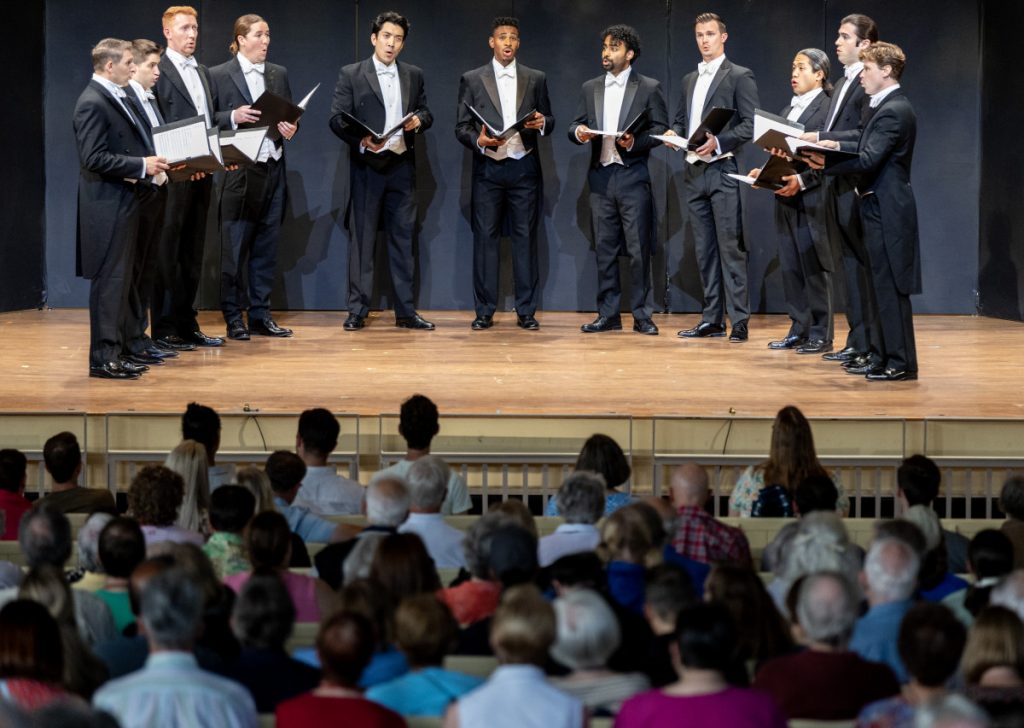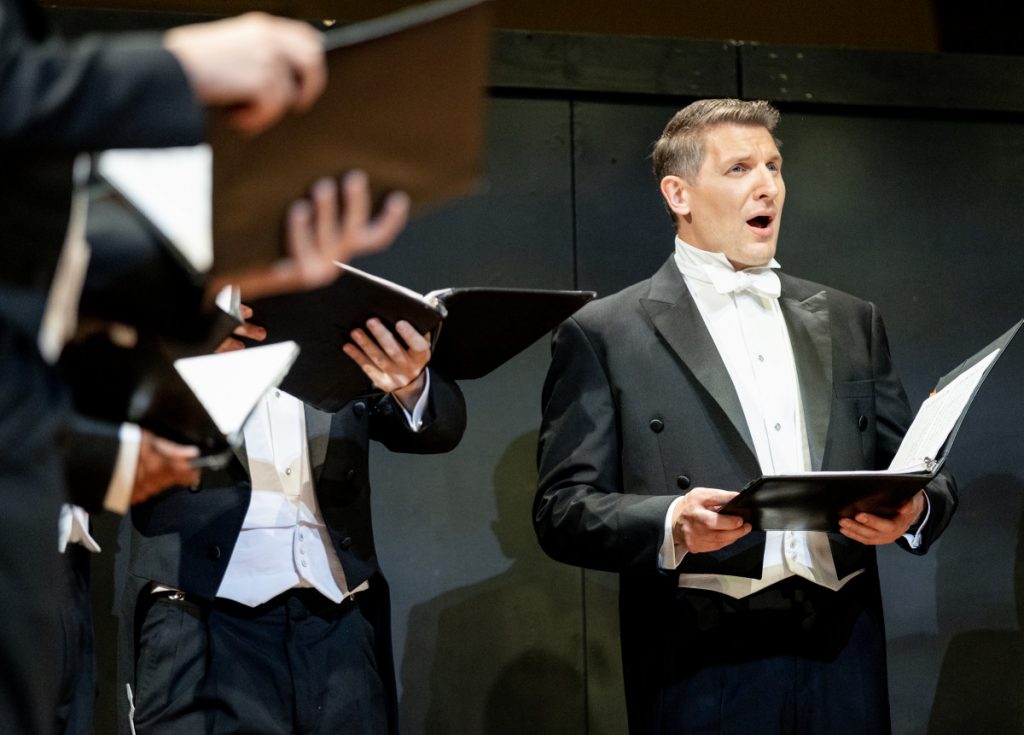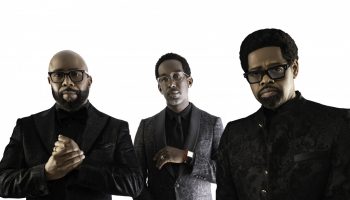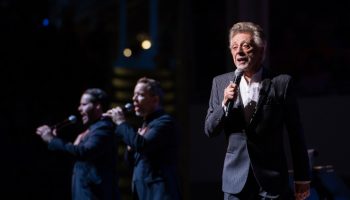
Andrew Druckenbrod
guest critic
That magnificent gravitational pull of Chautauqua Institution brought another superb group back into its orbit when Chanticleer took the stage Wednesday evening at the Amphitheater.
The all-male vocal ensemble had a memorable debut here in 2021, and it rang the bell again with a new program of wide-ranging music. “Labyrinth” explored how humans deal with the weighty obstacles in life, following that string, as it were, through many centuries and styles. In other words, a typical tour de force for this versatile group.
The concert began in the 16th century, opening with a set of Renaissance vocal polyphony. “Tu pauperum refugium (Thou art the refuge of the poor)” was a highpoint. Inhabiting a low range that featured the mahogany tone of the basses and baritones, it flowed into the seats in slow and somber counterpoint. The motet was once credited to Renaissance master Josquin des Prez, whose “In exitu Israel” was heard just prior. The tempo there was a bit fast, but the countertenors still managed to soar.
In contemporary music and arrangements, Chanticleer is particularly adept at navigating tight harmonies around those exquisite dissonances that serve as lighthouses. The concert abounded with examples, but particularly so in Trevor Weston’s “Oh Daedalus, fly away home,” “Blow, blow thou winter wind” by the great American composer George Walker and a fantastic arrangement of Harold Arlen and Ted Koehler’s hit from 1933, “Stormy Weather.”

The high point of the concert arrived with a touching arrangement of Joni Mitchell’s reflection on life, “Both Sides Now,” and Christopher Harris’ heartbreaking “My Way Home.” The guest soloist matched her bittersweet thoughts with smooth, yet aching, timbre. The ensemble performed the latter more straightforwardly as its subject is already intense. Sung from the imagined spirit of one of the children murdered at Sandy Hook Elementary, it unleashed emotion not only about that horrific school shooting, but also the tragedy of the many since.
The night ended with selections from the music genre unparalleled in its ability to transform struggle, the African American spiritual, concluding with the upbeat “Rock-a My Soul.”
Andrew Druckenbrod is a former classical music critic of the Pittsburgh Post-Gazette. He studied musicology at the University of Minnesota and is an adjunct professor at the University of Pittsburgh.




